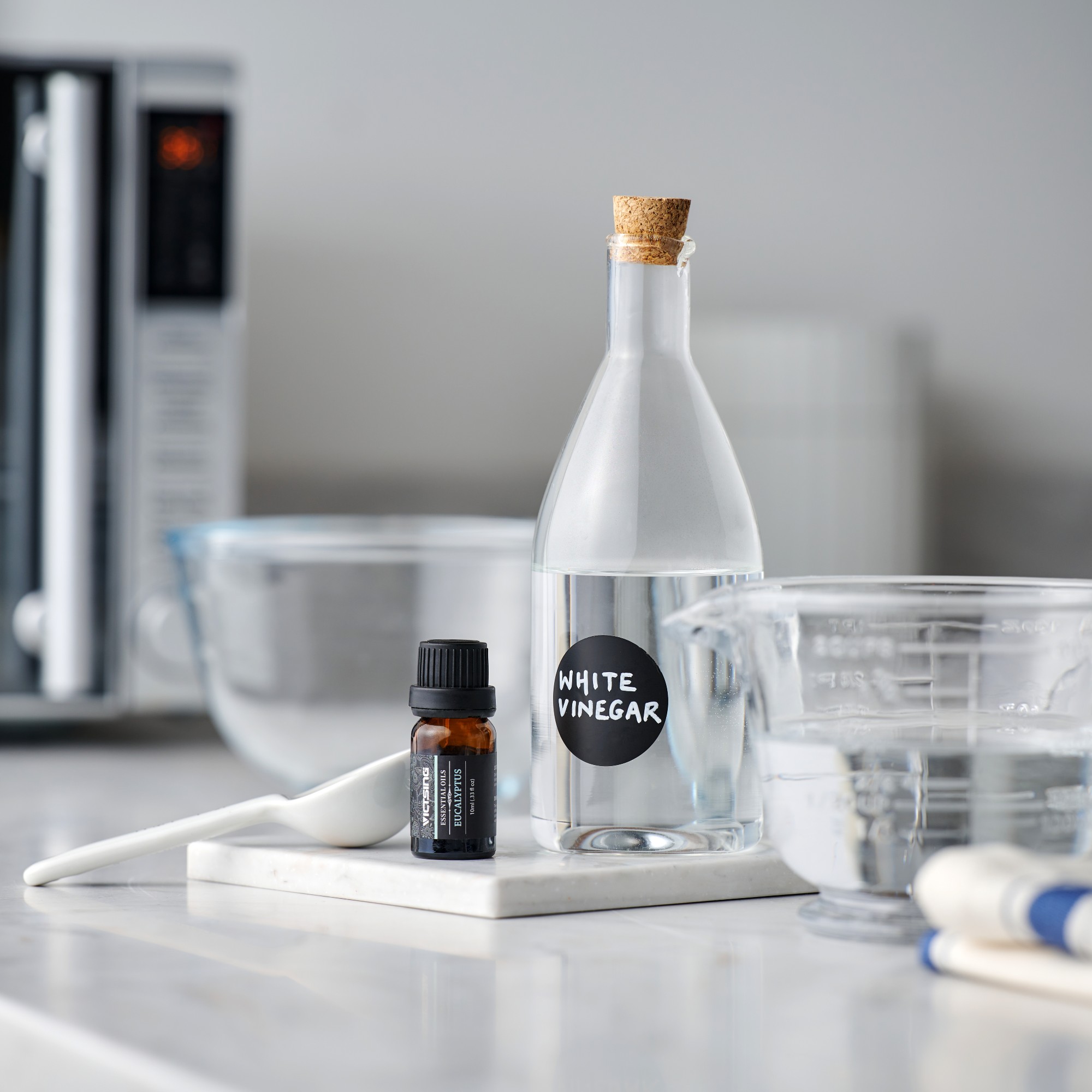
Learning what not to clean with white vinegar probably wasn’t on your bingo card for today, but it turns out that white vinegar could be doing more harm than good. Especially if you use it around the house on a regular basis.
Of course, we’re not denying that cleaning with white vinegar can be a foolproof way to clean everything from your fridge to your best outdoor furniture. This natural cleaning product has been our saving grace on many occasions, and it’s a great alternative to using harsher chemicals on more delicate areas of the house.
But it’s important to stop yourself from getting sucked too far into the white vinegar fan club. Although it may be one of the best cleaning products out there, it can also be incredibly harmful if used incorrectly and on the wrong household items. So, we asked our experts to give us the low-down on what not to clean with white vinegar.
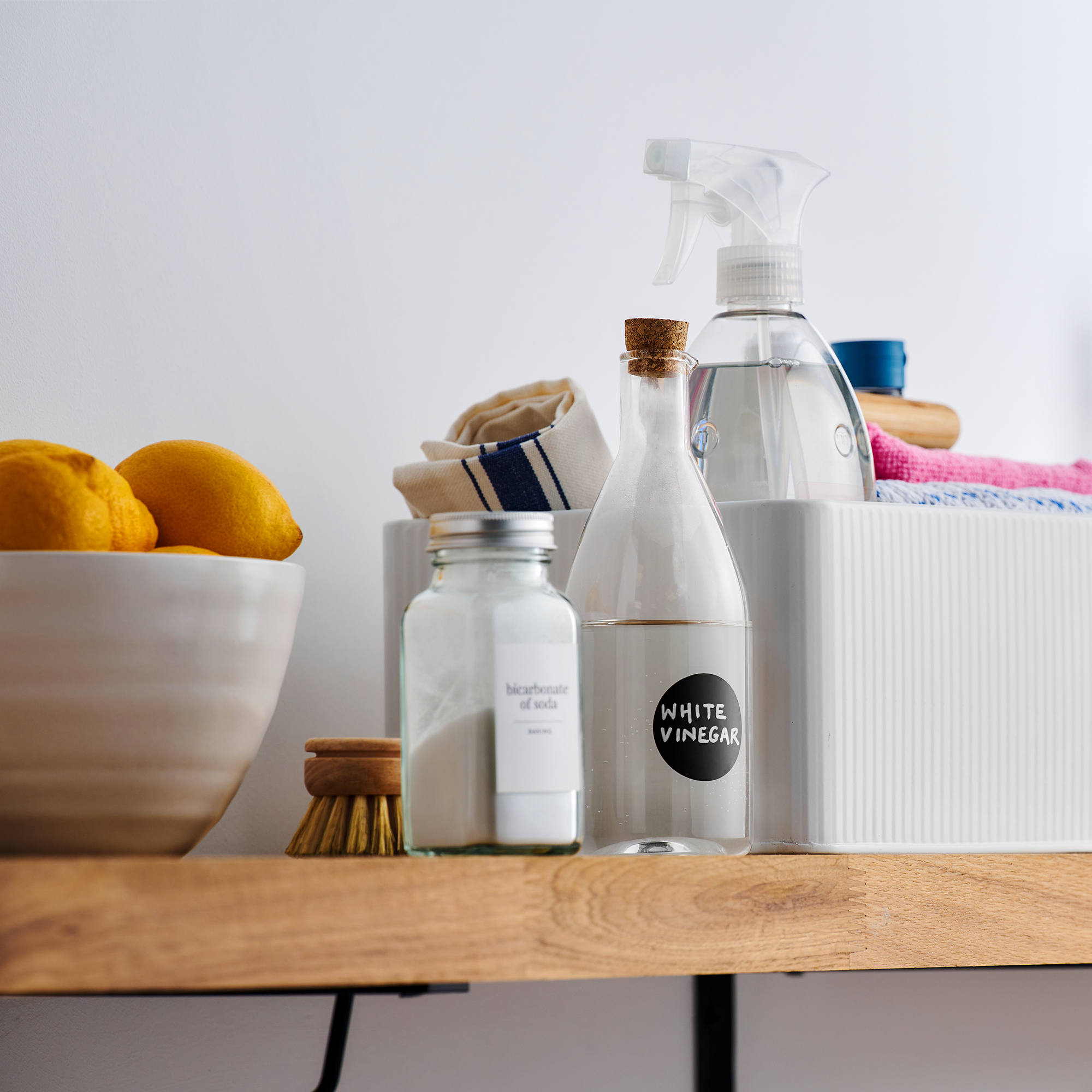
What not to clean with white vinegar
The world has seen a white vinegar revolution over the past few years, with more and more people using this cleaning product during their spring cleans and their weekly cleaning sessions. But you could be cleaning your house all wrong. Here are 9 things you should never clean with white vinegar.
1. Wooden floors
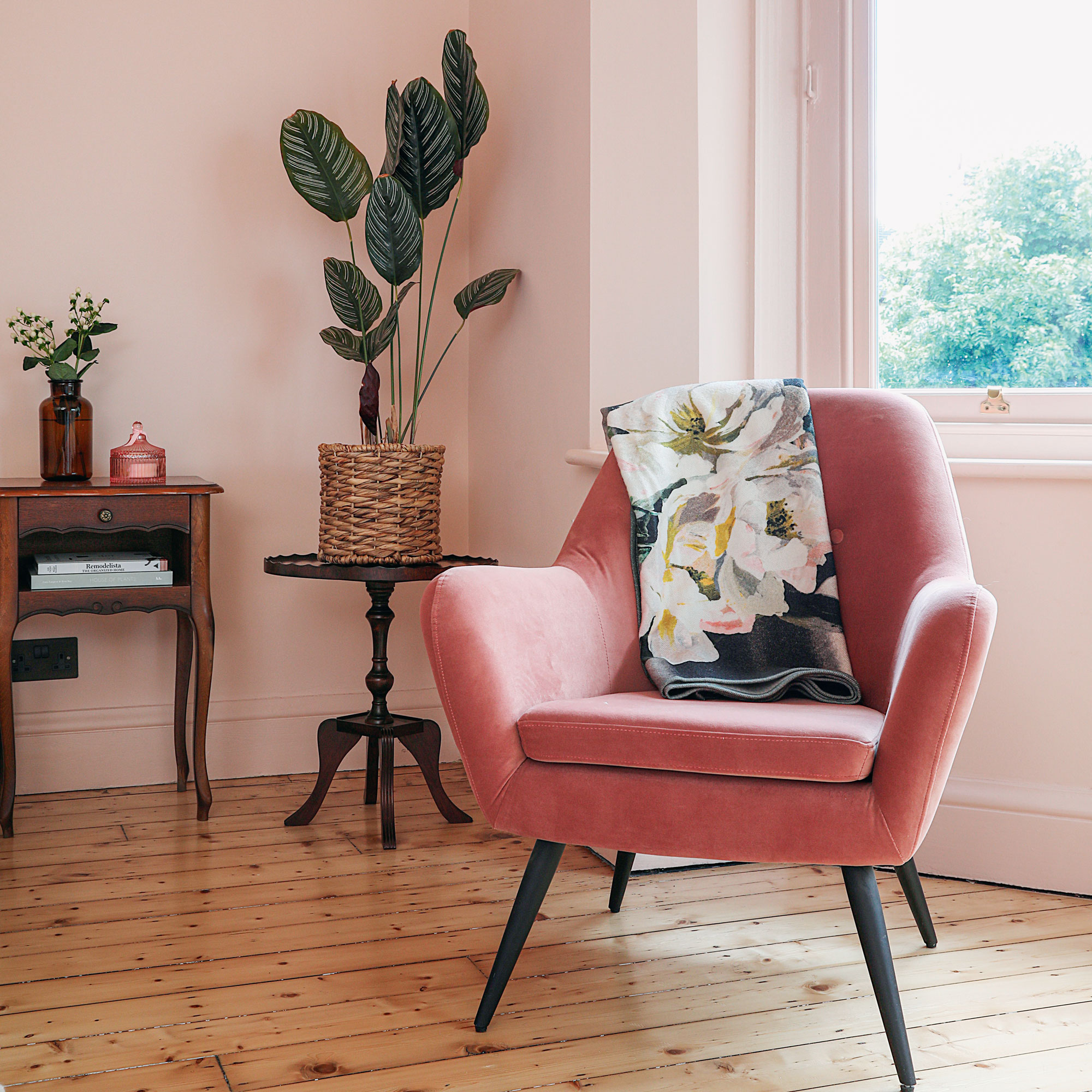
Wood flooring is a timeless addition to any house, but those considering a jump from carpet to hardwood floors need to understand that wooden floors are extremely delicate. And, actually, the high acid content in vinegar can completely ruin them.
Natalie Mudd, Creative Director of The Wood Flooring Co, says, ‘As vinegar is acidic, the product can be damaging to the top layer (protection) of the flooring. Continuous damage to this will reduce shine and cause dullness over time, alongside the potential to cause swelling.’
The same fact applies to anything made from wood, including any wooden furniture you may have in your house. When cleaning a wooden floor Natalie suggests using a pH-neutral cleaner on a damp cloth, instead.
2. Electronic screens
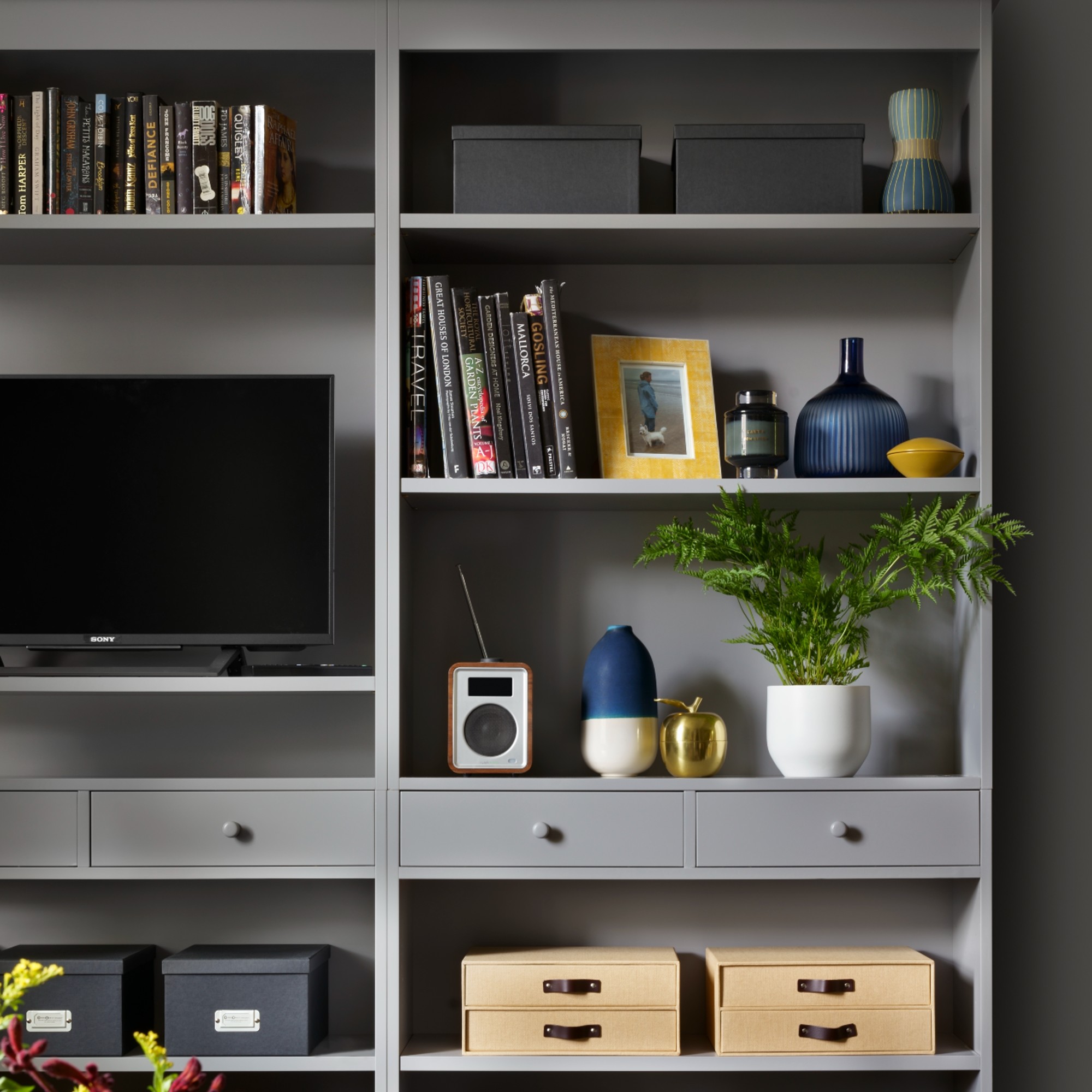
Whether you want to clean your TV screen or give your phone a good wipe-down, it can be easy to head into your utility room and grab your white vinegar. After all, it works wonders for so many other surfaces around the house.
But this is your sign to put the white vinegar down and clean your TV screen with Vaseline instead. Using vinegar on your electronic screens can have disastrous effects and maybe even force you to shell out for a brand-new TV.
That's because white vinegar strips away the protective coating of your screen, potentially corroding the electronics underneath.
3. Mirrors

Considering white vinegar is a great way to clean your windows, it would make sense for white vinegar to work as a mirror cleaner, too. But that’s not the case at all.
In fact, you should never clean a mirror with white vinegar, as you may be shelling out for a new one sooner than you’d like. That’s because the high acidity content of the vinegar can actually strip back the backing of the mirror and dull its shine.
If you do really want to clean a mirror with vinegar, however, you must ensure that you dilute it with water.
4. Natural stone surfaces
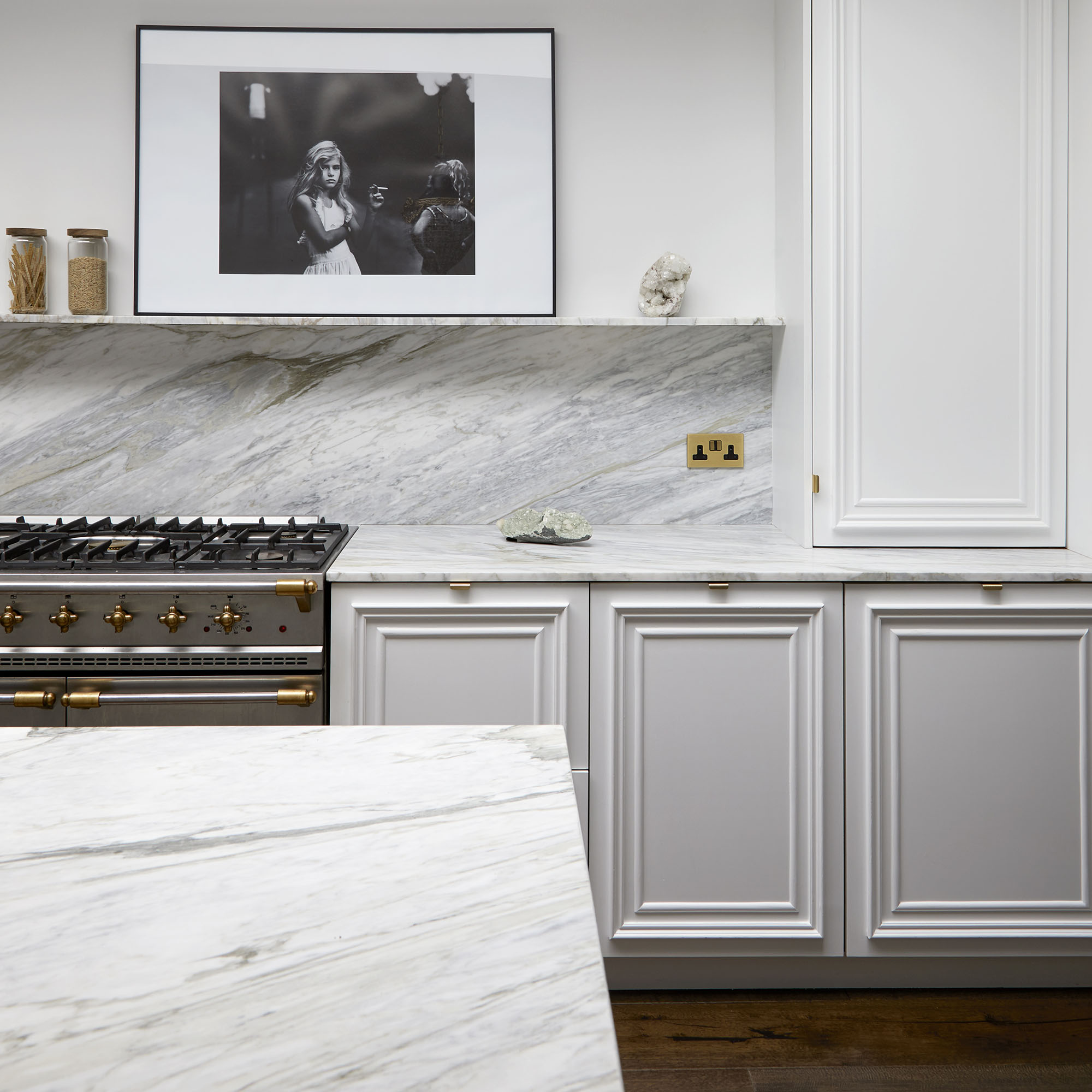
Whether you have a granite kitchen worktop or marble tiles in your bathroom, natural stone surfaces are a stylish and practical addition to your home. Of course, natural stone is also very expensive - which is why you shouldn’t clean it with white vinegar.
No, natural stone and vinegar do not mix, as the strength of vinegar can actually dull the stone and penetrate the protective outer surface of the stone. This could ultimately leave you with stubborn stains that just won’t budge, no matter how hard you try.
To clean natural stone, a solution of warm soapy water will work wonders.
5. Cast Iron

Cast iron cookware is arguably the best you can buy, and many people have cast iron stoves in their homes. However, the debate around cleaning cast iron is a difficult one. After all, some have found that white vinegar can be beneficial in removing intense rust damage from cast iron.
In general, it’s best to avoid your cast iron coming into contact with vinegar, though. Not only can it remove the non-stick properties you’ve tried so hard to maintain, but it can also cause irregular pitting or cratering.
With cast iron stoves, you should definitely steer clear of white vinegar, completely. Joanna Humphreys, Fire & Stove Expert for Direct Stoves, comments, ‘As a general rule of thumb, you want to avoid using any liquid anywhere near the stove as this can lead to rust.'
'Instead, use a stove glass cleaning pad to keep the glass panel looking as good as new and use a dry cloth to dust down the exterior.’
6. Washing machine
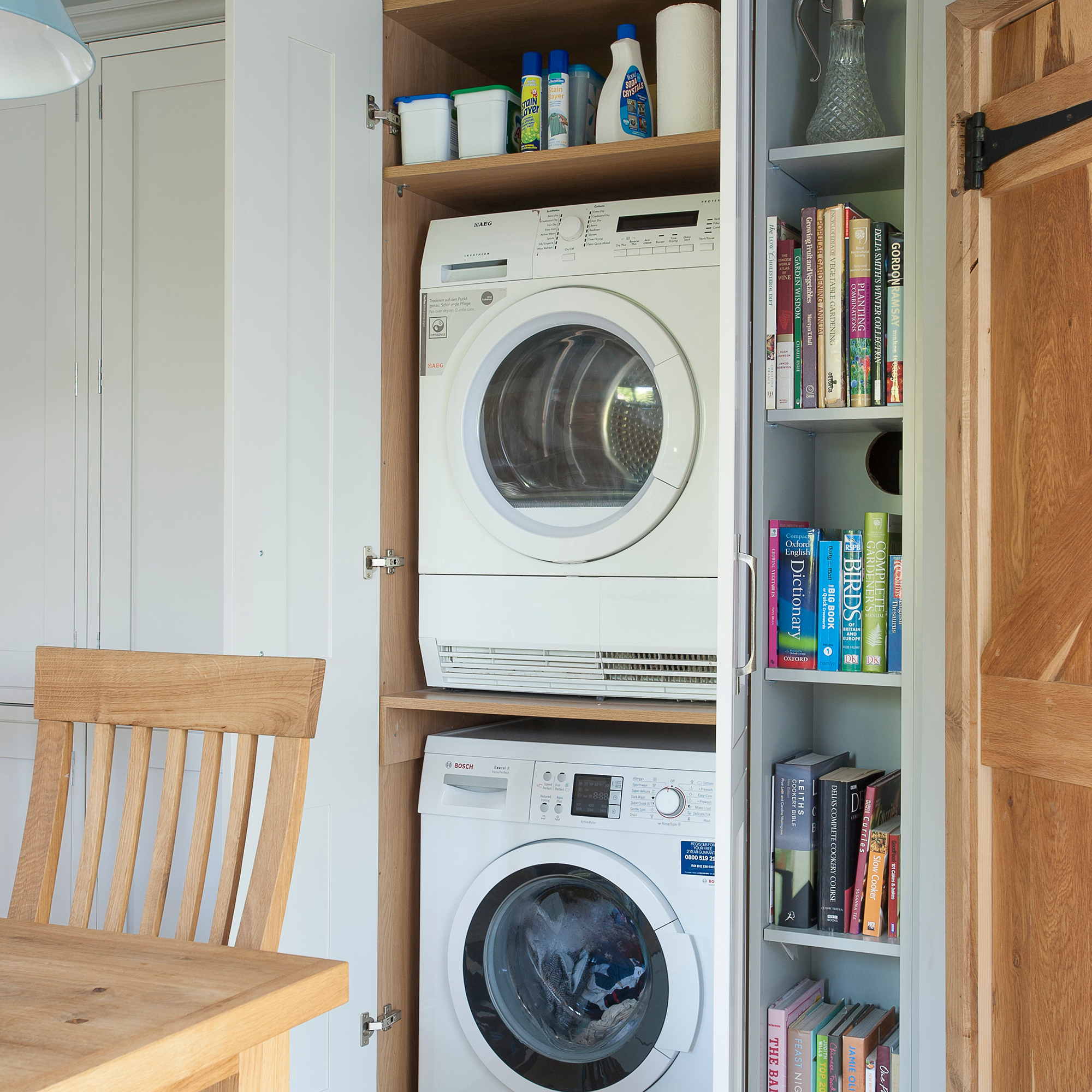
The benefits of using a washing machine to wash your clothes go out of the window when your washing machine leaks all over the place. And what you might not realise is that cleaning your washing machine with white vinegar could cause it to leak.
‘Your washing machine contains rubber seals, hoses, and other rubber elements that can become damaged from the acid in the vinegar. This can then lead to leaks in your washing machine,’ explains cleaning expert Carol Harding at HomeAdviceGuide.com.
So, it’s best not to risk it. And if in doubt, here’s our step-by-step guide on how to clean a washing machine.
7. Knives
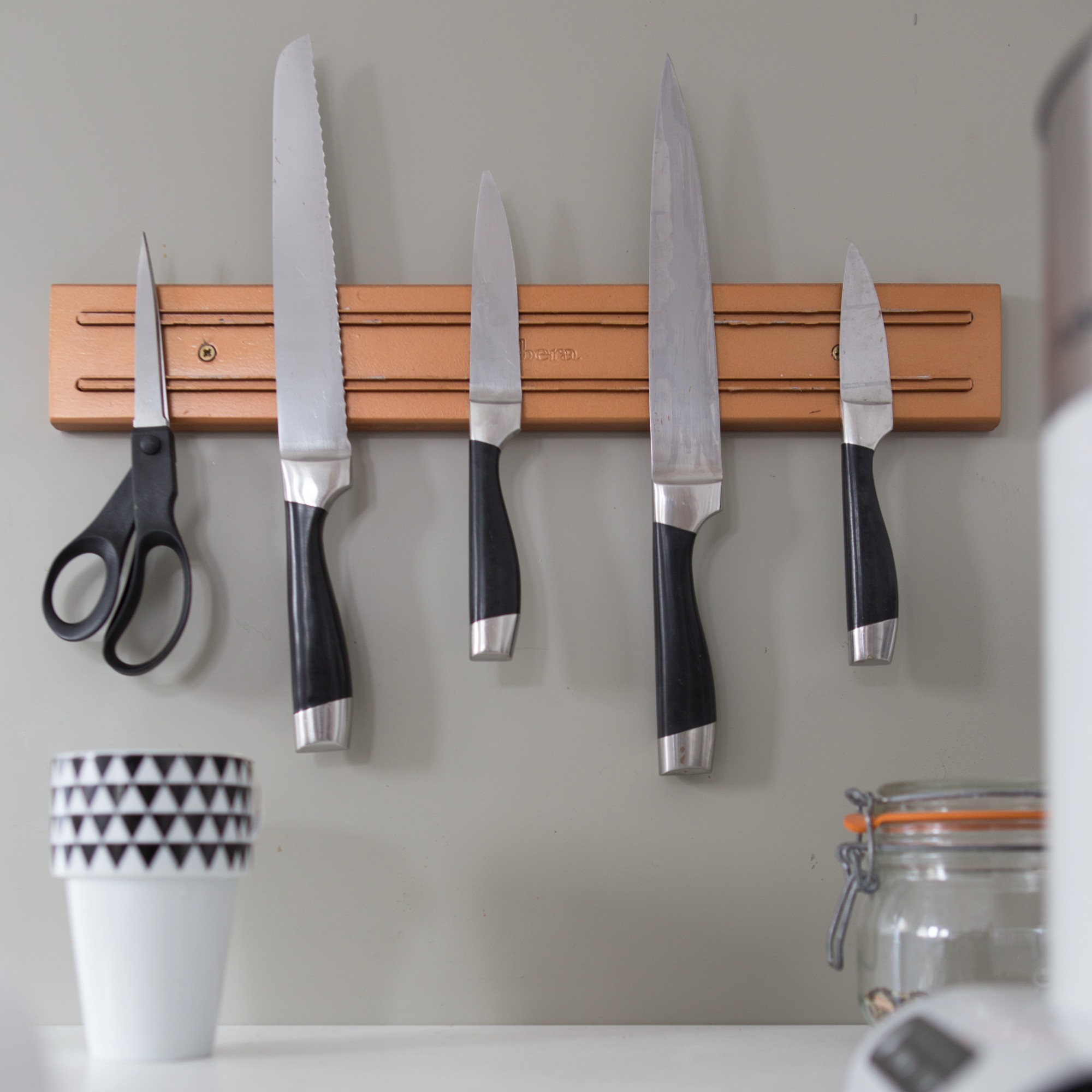
One of the reasons white vinegar is so popular as a cleaning product is that it leaves things sparkling clean. And that’s what you want for your best knives, right?
Unfortunately, you should avoid cleaning knives with vinegar at all costs if you want your knives to last. ‘Tools that have exposed edges, like kitchen knives, are vulnerable when it comes to vinegar. Vinegar can damage the finish on the knives and can also leave the edge pitted,’ explains Carol.
Instead, clean your knives with warm, soapy water.
8. Clothes Iron
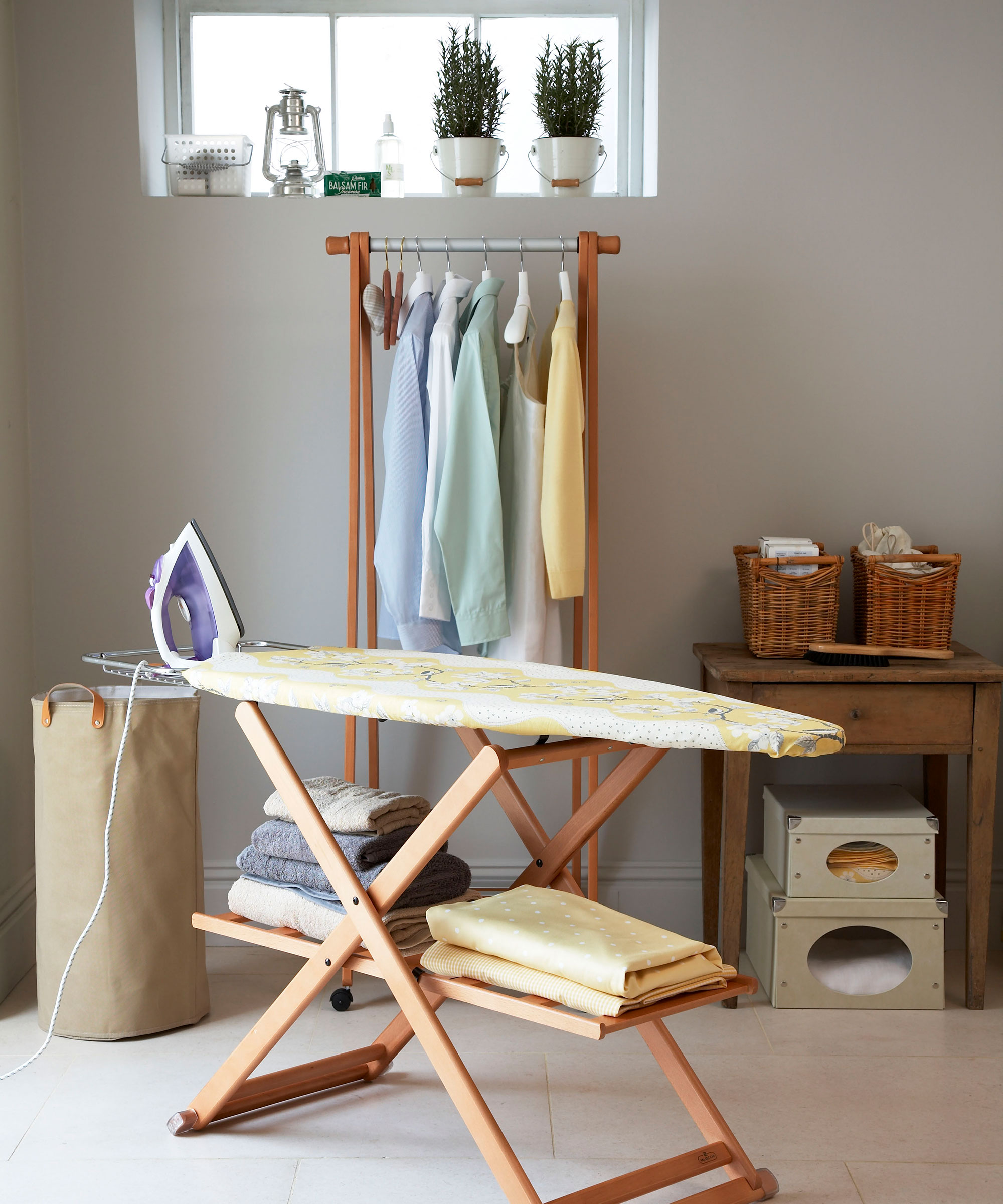
Ironing your clothes may seem like a simple job, but this household chore does require a little extra thought. Not only should you never iron clothes before folding them, but you should also never clean an iron with vinegar.
Although vinegar does have the ability to treat limescale build-up inside the iron, white vinegar also has the ability to erode the interior mechanisms of the iron. This would ultimately make the iron unsafe to use and sometimes render it useless.
If in doubt as to whether you can use white vinegar to clean your iron, it’s best to consult your instruction manual - or just avoid it altogether. Luckily, there are so many other ways to clean an iron.
9. Dishwasher
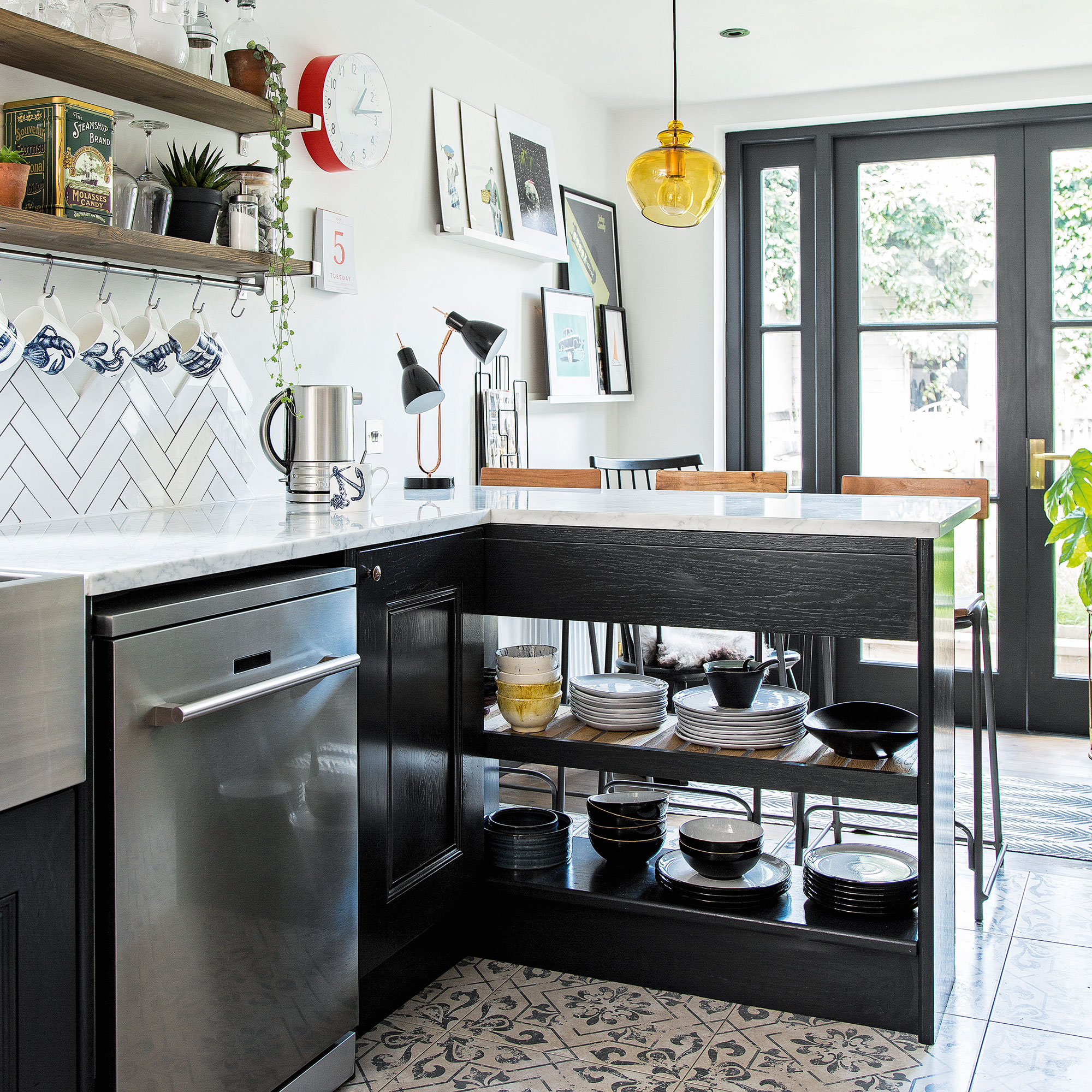
When you find a good dishwasher, you probably want to protect it at all costs. And while cleaning a dishwasher with white vinegar has become somewhat of a cleaning trend over the past couple of months, experts want you to think twice before whipping out your bottle of vinegar.
The reason is that vinegar is extremely strong and corrosive and can easily damage and break down certain materials, including rubber. Considering rubber seals are used in dishwashers to keep the water in, the last thing you want to do is damage them.
Nicola Rodriguez, AKA Essex House Dolly, says, ‘Never put it in the dispenser drawer, as the acid is strong enough to melt the rubber gaskets. Instead, I recommend putting a cup of vinegar on the bottom of your rack and then starting your cycle.’
What surfaces should be avoided with vinegar?
In the grand scheme of things, it’s best to avoid anything that’s not glass or plastic when cleaning with vinegar. As vinegar is highly acidic and corrosive, it can be extremely damaging to natural or soft materials such as marble or rubber. And when this happens, the vinegar can damage protective layers and even damage crucial parts of the item.
Can I use white vinegar to clean everything?
No, you can’t. Although white vinegar is highly effective in cleaning windows and bathrooms, it shouldn’t be used to clean everything. White vinegar can be extremely damaging to certain materials if it comes into contact with them, and this could ultimately leave you with a bigger problem than when you started.







